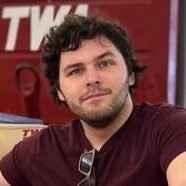When planning, it’s extremely important to match the nature of the planning process to the nature of the planners. For example, not all cultures prefer a linear, sequential approach to planning, that is, to decide mission, vision and values then subordinate goals and associated objectives.
One of the most challenging aspects of any strategic planning process is the strategizing — deciding how to address strategic issues and goals. This aspect is particularly important to match to the nature of the planners. For example, it might be useful to use a more organic approach to problem solving.
People in some cultures might believe that it can be quite illusory to believe that problems are identified and solved. These people might believe that the:
- Dynamics of organizations and people are not nearly so linear and mechanistic as to be improved by solving one problem after another.
- Quality of one’s life comes from how one handles being “on the road,” rather than from “arriving at the destination.”
- Quality comes from the process of fixing problems, rather than from having fixed the problems.
- Organic approach to strategic planning is probably more effective than other major approaches, such as goals-based or issues-based.
If this perception is broadly held in the organization, then try to accommodate it through selection of an appropriate planning process (such as organic strategic planning) or other techniques, such as story telling. If the planning group includes some people with any of these views, then consider mixing the techniques in order to satisfy some of the people some of the time.
Perhaps the following quote best describes the organic perspective:
“All the greatest and most important problems in life are fundamentally insoluble …
They can never be solved, but only outgrown. This “outgrowing” proves
on further investigation to require a new level of consciousness.
Some higher or wider interest appeared on the horizon and
through this broadening of outlook, the insoluble lost its urgency.
It was not solved logically in its own terms,
but faded when confronted with a new and stronger life urge.”
Carl Jung, Psychological Types, Pantheon Books: London, 1923.
————————————————————————-
Carter McNamara, MBA, PhD – Authenticity Consulting, LLC – 800-971-2250
Read my weekly blogs: Boards, Consulting and OD, Nonprofits and Strategic Planning.
 Sections of this topic
Sections of this topic















